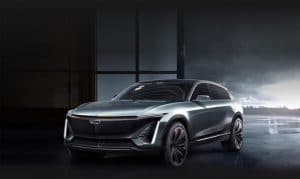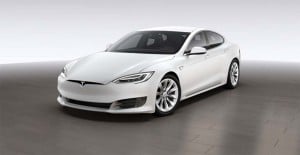
Boston Consulting Group’s Xavier Mosquet sees all the right things falling in place for battery-cars.
After several years of rapid growth, EV sales flattened out last year, raising concerns about the tens of billions of dollars automakers like Ford, General Motors and Volkswagen are spending on their electrification efforts.
A few years ago, Xavier Mosquet might have said that the industry was making a risky bet not likely to pay off anytime soon. But despite relatively slow sales, the head of the auto practice at the Boston Consulting Group has grown decidedly bullish on battery technology. A new BCG forecast sees the market share for electrified vehicles, ranging from hybrids to all-electric models, growing tenfold this decade, to 51 percent.
Perhaps more significantly, Mosquet sees key obstacles, such as EV range and price, rapidly fading away, meaning pure battery-electric vehicles could reach a “tipping point,” with prices reaching parity with gas-powered vehicles by as early as 2023.
“We thought we would reach a point where owning a battery car was a good economic payback for customers around 2025,” Mosquet told TheDetroitBureau.com during a lengthy conversation. “But the decline has been much more aggressive than we thought and today, we think the tipping point is somewhere between 2022 and 2023. In industry terms, that is like tomorrow morning.”
(Exclusive: GM’s next-gen EVs could charge as fast as you can fill an empty gas tank.)
While there are plenty of challenges, including the lack of a national public charging infrastructure to rival the ever-present gas station network, batteries have been the biggest challenge to EV acceptance, according to Mosquet and other experts.
But most new battery-electric vehicles, or BEVs, are offering at least 200 miles per charge and 300 is quickly being targeted as the new norm. Tesla CEO Elon Musk this week suggested a 400-mile version of the Model S is coming, and Cadillac President Steve Carlisle has indicated that’s his brand’s goal, as well.
That leaves battery pricing as an even more important challenge because the longer the range of a BEV the larger the battery pack it will need.”
But even as range grows, the new BCG study has found that battery prices have been falling faster than most anyone anticipated, with pack level prices running an average of $190 per kilowatt-hour right now. (Mosquet explaining that pack prices typically run about 140% of battery cells alone.
“By 2030, we expect (pack prices) will be $126, with an aggressive case of $95,” Mosquet said. “And we think that our forecasts could come even earlier” if battery suppliers target costs as aggressively as they promise.
(Lincoln turns to Rivian for all-electric SUV.)
For a 300-mile range requiring around 100 kWh in batteries, the cost savings would be huge. At today’s average, a pack would run around $19,000. BCG’s mid-range estimate would bring that down to $12,600, with the aggressive figure dipping to just $9,500.
In its 2018 EV study, the Boston Consulting Group estimated about 48% of U.S. vehicles would use some form of electric propulsion, with an emphasis on mild, conventional and plug-in hybrids. The latest survey raises the figure to 51 percent.
That might not sound like much of a difference, but the details of the new study are telling. It sees the big change in terms of plug-based models, whether hybrid or all-electric, jumping from 14% to 24% by decade’s end. And, when you look even closer, the consultancy sees the biggest growth occurring in the pure-electric segment, largely because of added range and lower prices.

Buyers will have more choices, as well as lower prices and longer range, said Mosquet, Cadillac here teasing the all-electric SUV coming this year.
(Tesla’s Musk teases plans to deliver 400 mile range.)
One other finding could come as a big surprise to those who’ve been predicting a big shift away from personal vehicle ownership as ride-sharing services like Uber and Lyft gain traction. But the new study finds that costs for these services aren’t likely to come down as quickly as expected, even if driverless vehicles take over.
“The ambitious forecasts for shared cars (have been) based on the idea we would shed car ownership” in large numbers, said Mosquet. “We don’t see that happening, now that we have more data on the shelf. Someday, it could become cheaper than owning a car (but, right now), owning a car is cheaper except in a few places like Manhattan.”
And with EVs expected to become less and less expensive to own and operate, Mosquet says fewer motorists will be willing to give up the freedom and flexibility of having a car in the driveway and always at the ready.
(Exclusive: Genesis set to enter EV market. First model will be an SUV.)



I’m still somewhat skeptical, at least as it relates to pure EVs. If you can still put gas in the car, then you don’t have to worry about range or, more importantly, finding a charging station and having the time to charge up. I suppose part of it is automakers figuring if they put these cars on the lot, and they are most of what is available, people will buy them whether they really want an EV or not. For most people, a car is just transportation and they are more concerned with price, color, safety features, etc…
Paul, 80% of charging is done at home. The number of times people actually then need to charge on the road is minimal. So, for most folks, EVs now provide more than the range they need. And, if they have a second vehicle in the household fleet, even longer drives where they might need to charge on the road is resolved.
Paul E.
I have often thought the same thing, that if I had one I would mostly charge it at home. As this appears to be the case with most people, then why aren’t EVs selling better? All I’ve been able to come up with is that people don’t like the idea of not being able to take their car wherever they want to go, even if they have a hybrid or a gas powered car, also. As we’ve discussed, it’s the anxiety of not being able to find a charging station and the time it takes to charge when you do find one. Interestingly, I read that Porsche has dropped the plan for a 911 EV, even though the 2020 model is able to accommodate that platform.
Paul, I am a big believe in momentum and I expect that we will see it build at some point in the coming decade. Why not yet?
1) EVs are new and, for many people, still strange and even scary. A real unknown.
2) Though all studies show crazy-positive owner satisfaction and loyalty, there aren’t enough yet for word-of-mouth to really spread broadly. This could be what tips things eventually.
3) There still is a big lack of product, something we will see change rapidly between mid-2020 and end-2022. More product, more choice, well, you know how that can work.
4) Costs are tumbling, but still aren’t quite there. The broad consensus is that we’re 2-4 years from parity with ICE vehicles.
5) Americans buy vehicles based on what they may possibly, perhaps, eventually, could require. Range is rising fast but I really see 300+ now as being the must-hit for even mainstream vehicles. In part, that reflects the hits EV range can take in cold weather.
6) Yep, home charging is a major PLUS for EVs. But it doesn’t help people in apartments unless landlords wind up having to install lots of chargers. I am convinced there will need to be less public charging but still must be enough that you can readily find one wherever you want to go. AND…
7) Charging times have to come down. (See my story from last week on GM’s 10-minute target.)
As to the Porsche 911, I want to get a better sense of their plans before I respond. Separately, the Audi of America electrification chief spoke in Chicago yesterday (story to come) and, if anything, expect even more EVs than they previously announced.
Paul E.